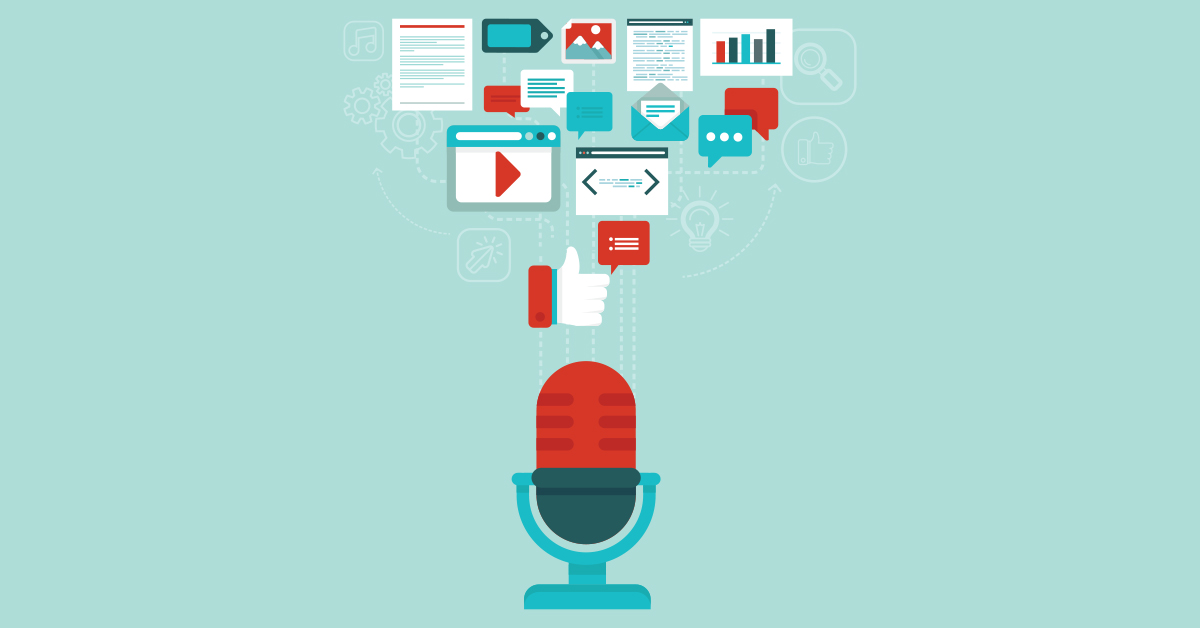Sales teams don’t get very far by being office-bound, but when you’re in between meetings with a bit of time to spare, there are only so many make-work tasks available to keep you busy. After you’ve updated CRM tools like Sales Cloud and followed up on e-mail, for example, it might be a great time to listen to your favourite podcast.
Ever since National Public Radio’s Serial podcast became a surprise hit a few years ago, all kinds of companies and creators have delved into the medium. There are podcasts to entertain, podcasts to educate, and even podcasts to assist with selling. Even if you’ve never subscribed or listened to a podcast, though, now may be the time to jump on the bandwagon -- especially if you want to get better at prospecting.
Why? Like most initial outreach to a prospect, podcasts are audio-only conversations. The best of them, however, become a memorable experience for the listener. This is not unlike the effect reps want to have when a prospect hangs up the phone. You not only want the conversation to lead to an in-person meeting or demo. You also want to establish a sense of trust (like believing in what you hear on a podcast) and ongoing interest.
In other words, just as fans look forward to the next episode of their favourite podcast, reps not only need to turn prospects into customers but fans who will talk them up to the rest of the buying team.
Pay attention to a really good podcast and you’ll start to hear some things that could serve as a template of sorts for your next call. Are you listening?
Opening with a teaser
Depending on the podcast, a host might offer an audio snippet with a great quote from their interview subject, or a quick rundown of what listeners can expect to hear over the course of an episode. When you’re prospecting, don’t wait until you’re mid-way through the conversation to offer value but give enough information in the first few seconds to show why they should keep listening.
Tell An Immersive Story
It’s kind of amazing that podcasts have become all the rage in an era where we tend to assume that video will be the predominant way to tell great stories. The best podcasters have shown, however, that you aren’t necessarily limited by a medium in which people can’t see anything. Instead, they try to ensure that the audience can use their imagination to do the visualization. When you’re talking to a prospect, don’t just keep the conversation theoretical or abstract. Use real examples with similar customers. Challenge yourself: Can you help the prospect see, hear, or even imagine the smell and taste of the situations you’re describing?
Ask Questions As Though Others Are Listening To The Answers
Some podcasters are outstanding interviewers, probing for details on things that their guests have never discussed before. Often using open-ended questions, they give their subjects ample time to provide an answer or take the conversation down an unexpected route.
When you’re prospecting, you may be the only one on the other end of the line, but imagine if you were trying to satisfy an audience who didn’t know as much about the prospect as you do. How would you make sure all the relevant details come out? Pretending you’re interviewing a prospect for a crowd may help elicit information that would otherwise stay behind the scenes.
Make Your ‘Show Notes’ Available
Even if you’re listening to a podcast on a mobile device, those who produce them usually market them through their web site or another online channel. Along with describing a particular episode or a brief bio of their guests, many podcasts offer “show notes.” These can include the time in the episode where a question of high interest was answered, along with links to books, articles, videos or other things that came up on in the conversation that listeners may want to pursue.
Prospects may not be taking notes when they’re on the line, but sales reps should. These notes are not only helpful to add to your CRM but to feed back to the prospect afterwards. Maybe you could give answers to questions that couldn’t immediately be addressed at the time, or links to marketing assets that will move them towards the next stage of the buyer journey.
Include Subtle Calls To Action In A Friendly Way
Many podcasts are monetized through sponsorship, but some hosts are creative in how they bring this up in an episode. There might be a “thanks” and suggestion that listeners visit a sponsor’s web site at the beginning of an episode, at the end as the show closes or even mid-way through as the episode moves from one segment to the next.
The calls to action (CTAs) for a sales rep can go beyond “buy now!” They could include an invitation to an event or webinar the company is hosting, an offer for a demo, or even a mention of case studies and testimonials that the prospect might enjoy reading in more detail later on.
Maybe the final point of comparison between podcasts and prospecting is that the end of the episode is never intended to be final. It’s less of a sign-off than an “until next time.” Audiences keep coming back to podcasts because they’re like an amazing conversation that you want to keep building upon. That should be the long-term goal for any rep spending their time on prospecting as well.


